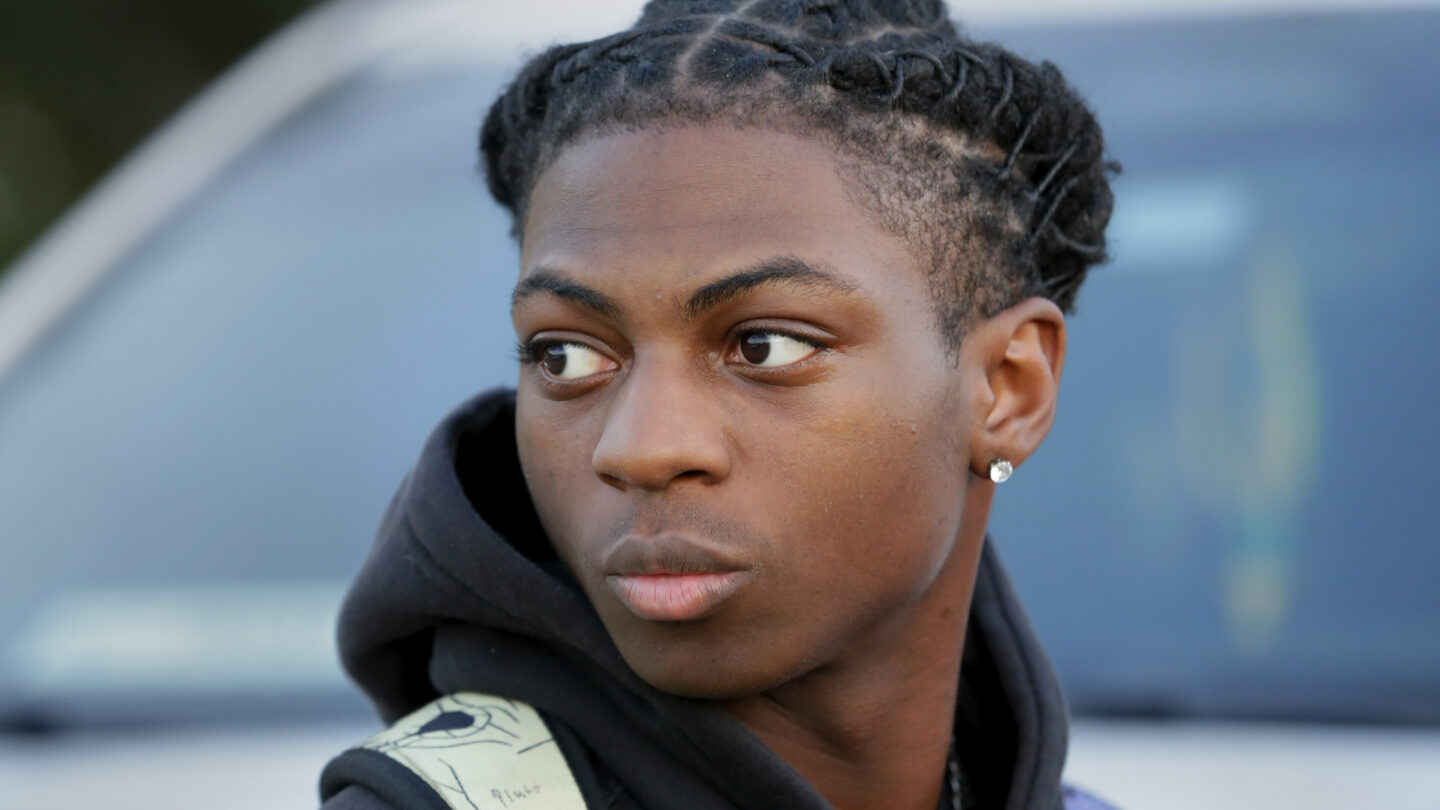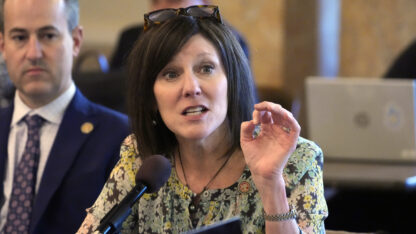A trial is underway over a Black student punished by Texas school district because of his hairstyle

A trial began Thursday to determine if a Texas school district can continue to punish a Black high school student for refusing to change his hairstyle that he and his family say is protected by a new state law that prohibits race-based hair discrimination.
At issue is whether Darryl George’s monthslong punishment for violating his Houston-area school district’s dress code limiting the length of boys’ hair violates the CROWN Act.
The Barbers Hill school district filed a lawsuit seeking clarification of the new law. The bench trial is scheduled to last one day. State District Judge Chap Cain III is expected to issue a decision soon after its conclusion.
Dozens of people filed into the courtroom in Anahuac, outside Houston, where George and his mother, Darresha George, told reporters they were hopeful his punishment would soon end allowing him to return to regular classes.
“We’re going to get justice today,” Darresha George said. “I’m nervous but I’m happy.”
The CROWN Act, which took effect in September, prohibits race-based hair discrimination and bars employers and schools from penalizing people because of hair texture or protective hairstyles including Afros, braids, locs, twists or Bantu knots.
Sara Leon, an attorney for the school district, told Cain that the Barbers Hill dress code “is consistent with the CROWN Act” and that the policy “is race neutral.”
Allie Booker, Darryl George’s attorney, said when lawmakers approved the new law, they discussed allowing longer hairstyles to be gathered up and still be protected by the CROWN Act.
“They can force an individual to knot it up, bun it up, but the style itself is protected. It doesn’t allow for a cut. It allows for a manipulation,” Booker said.
The Barbers Hill school district said George’s long hair, which he wears in tied and twisted locs on top of his head, violates its dress code policy because it would fall below his shirt collar, eyebrows or earlobes when let down. The district has said other students with locs comply with the length policy.
George, an 18-year-old junior, has not been in his regular classroom at Barbers Hill High School in Mont Belvieu since Aug. 31. He has instead served in-school suspension and spent time in an off-site disciplinary program.
In court documents, the school district maintains its policy does not violate the CROWN Act because the law does not mention or cover hair length.
In a paid ad that ran in January in the Houston Chronicle, Barbers Hill Superintendent Greg Poole wrote that districts with a traditional dress code are safer and have higher academic performance, and that “being an American requires conformity.”
But Allie Booker, George’s attorney, has argued that the Texas lawmakers who wrote the CROWN Act had safeguarding hair length in mind as many of the hairstyles protected by the new law require hair to be long.
Several of the lawmakers who wrote the CROWN Act were expected to testify on behalf of George.
One of them, state Rep. Rhetta Bowers, said in an affidavit that “length is protected because it is essentially why protective styles are worn.”
George’s family has also filed a formal complaint with the Texas Education Agency and a federal civil rights lawsuit against Gov. Greg Abbott and Attorney General Ken Paxton, along with the school district, alleging they failed to enforce the CROWN Act. The lawsuit is before a federal judge in Galveston.
Barbers Hill’s hair policy was also challenged in a May 2020 federal lawsuit filed by two other students. Both withdrew from the high school, but one returned after a federal judge granted a temporary injunction, saying there was “a substantial likelihood” that his rights to free speech and to be free from racial discrimination would be violated if he was not allowed to return. That lawsuit is pending.
Follow Juan A. Lozano: https://twitter.com/juanlozano70








